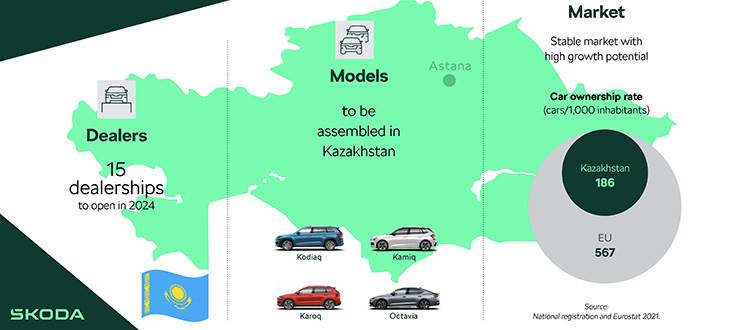Exyte is set to build the dry room for Volkswagen’s battery cell gigafactory in Salzgitter, Germany Exyte is responsible for design, procurement, construction and commissioning of the dry room Control of the manufacturing environment is technically demanding and critical to product quality Exyte CEO Büchele: “Receiving this contract is an achievement of strategic relevance for… Continue reading Electromobility: Exyte to build state-of-the-art dry room for Volkswagen’s first ever battery cell gigafactory
Tag: Strategy
Thailand BOI Approves Investment Applications Worth USD1.1 Billion in EV, Renewable Energy, Data Centers, Travel Infrastructure Projects
BANGKOK, Oct. 11, 2023 /PRNewswire/ — The Thailand Board of Investment (BOI) yesterday approved investment promotion applications worth a combined 41 billion baht (USD1.1 billion) in projects including the manufacturing of electric vehicles (EV), the generation of renewable energy from waste, data centers, as well as travel and tourism infrastructure and equipment. The meeting, which… Continue reading Thailand BOI Approves Investment Applications Worth USD1.1 Billion in EV, Renewable Energy, Data Centers, Travel Infrastructure Projects
Constellation Cold Logistics entered into an agreement to acquire VF Coldstores
LONDON, Oct. 11, 2023 /PRNewswire/ — Constellation Cold Logistics (“Constellation” or the “Company”), a leading European cold storage and logistics provider, announced today that it has entered into an agreement to acquire VF Coldstores (“VF”). The transaction will allow Constellation to enter the Irish market, strengthening its European footprint and service offering for existing and new… Continue reading Constellation Cold Logistics entered into an agreement to acquire VF Coldstores
Constellation Cold Logistics entered into an agreement to acquire Colso Cold Storage
LONDON, Oct. 11, 2023 /PRNewswire/ — Constellation Cold Logistics (“Constellation” or the “Company”), a leading European cold storage and logistics provider, announced today that it has entered into an agreement to acquire Colso Coldstorage Ltd (“Colso”). The transaction will allow Constellation to enter the Irish market, strengthening its European footprint and service offering for existing and… Continue reading Constellation Cold Logistics entered into an agreement to acquire Colso Cold Storage
Skoda to re-enter Kazakhstan market, plans local assembly of four models
Skoda Auto is poised to re-enter the Kazakhstan market. The Czech car manufacturer has engaged a new sales and production partner, Allur Company, with both companies recently signing a partnership agreement. Four models will be assembled locally in Kazakhstan starting in early 2024. The model series available in Kazakhstan will include the Kodiaq, Kamiq, and… Continue reading Skoda to re-enter Kazakhstan market, plans local assembly of four models
Cendyn doubles down on the future of CRM with strategic acquisition of PUSHTech
Leading hotel tech provider takes transformative step towards a next generation CRM platform that empowers hoteliers to build stronger relationships with their guests whilst driving profitable revenue BARCELONA, Spain, Oct. 10, 2023 /PRNewswire/ — Cendyn, a catalyst for digital transformation in the hospitality industry, is thrilled to announce its strategic acquisition of PUSHTech, a pioneering… Continue reading Cendyn doubles down on the future of CRM with strategic acquisition of PUSHTech
ARA PARTNERS ACQUIRES VACUUMSCHMELZE, LEADING GLOBAL ADVANCED MAGNETIC MATERIALS PRODUCER
Sole Western Manufacturer of Sintered NdFeB Electric Vehicle-Grade Permanent Magnets Poised to Meet Significant Demand for High-Quality, High-Performance Magnetic Materials Critical to the Global Energy Transition HOUSTON and HANAU, Germany, Oct. 10, 2023 /PRNewswire/ — Ara Partners (“Ara”), a private equity firm that specializes in industrial decarbonization investments, today announced that it has acquired Vacuumschmelze… Continue reading ARA PARTNERS ACQUIRES VACUUMSCHMELZE, LEADING GLOBAL ADVANCED MAGNETIC MATERIALS PRODUCER
CSP Associates Expands Senior Leadership Team, Adding Dr. Rob Mullins as Senior Managing Director
CAMBRIDGE, Mass., Oct. 10, 2023 /PRNewswire/ — CSP Associates LLC, a leading commercial diligence advisory firm in the aerospace, defense, and government services markets, announced today an expanded senior leadership team, adding Dr. Robert (Rob) Mullins as a Senior Managing Director. Rob will help lead all facets of CSP’s strategic and transaction advisory practices, including… Continue reading CSP Associates Expands Senior Leadership Team, Adding Dr. Rob Mullins as Senior Managing Director
Nox Management Expands Portfolio with Trampo Extreme Acquisition
KUWAIT CITY, Oct. 10, 2023 /PRNewswire/ — Kuwait-based Nox Management acquires Trampo Extreme, a renowned entertainment and adventure enterprise spanning across Kuwait, UAE, Bahrain, Qatar, and Oman. This strategic move marks a pivotal milestone in Nox Management’s ambitious growth and expansion strategy. Globally, the Entertainment Centers sector boasts a staggering worth of US$ 11.2 Billion,… Continue reading Nox Management Expands Portfolio with Trampo Extreme Acquisition
ASYAD EXPRESS PARTNERS WITH EVRI TO LAUNCH TRANSFORMATIONAL E-COMMERCE GATEWAY HUB IN OMAN AND THE MIDDLE EAST
Asyad Express forms landmark strategic alliance with Evri, the UK’s largest dedicated parcel delivery company Partnership to attract major UK, European, US and Chinese players to Oman by facilitating access to Asyad Group’s world-class logistics ecosystem Collaboration provides a unique opportunity for UK and European retailers to expand into the Middle East e-commerce market Partnership… Continue reading ASYAD EXPRESS PARTNERS WITH EVRI TO LAUNCH TRANSFORMATIONAL E-COMMERCE GATEWAY HUB IN OMAN AND THE MIDDLE EAST
